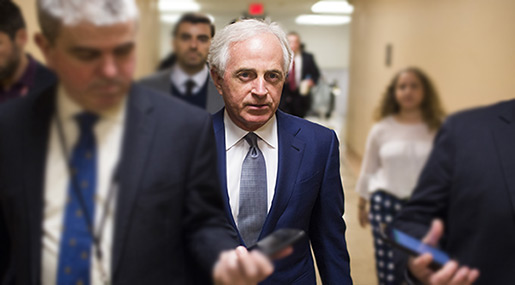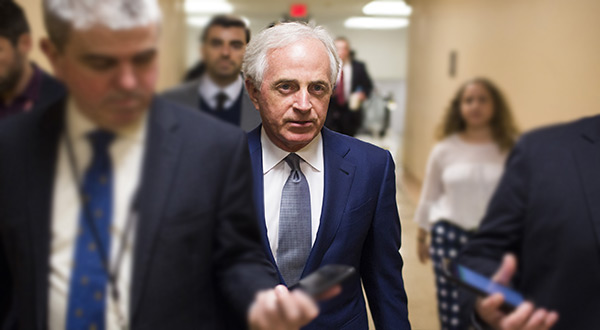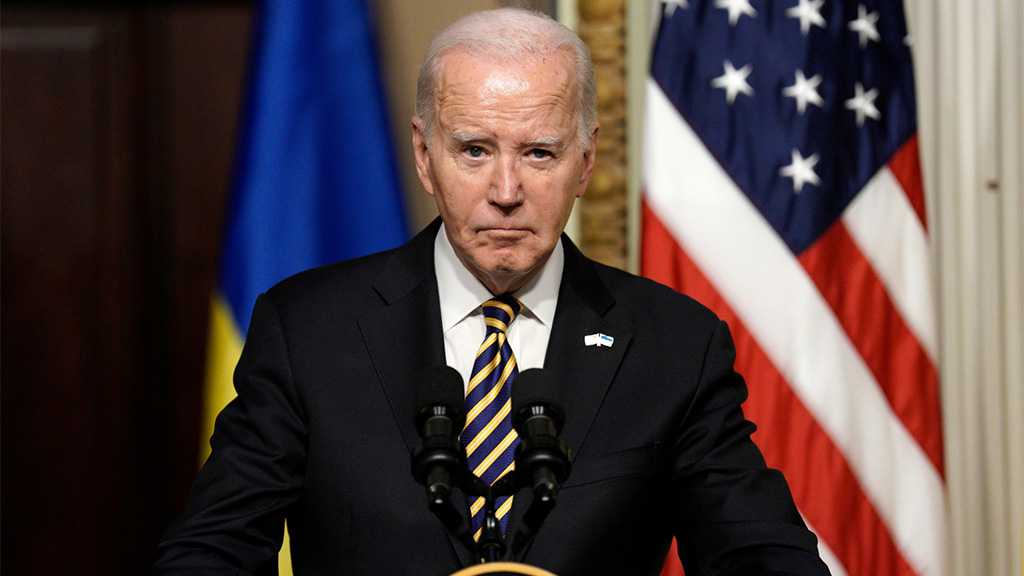
US Congress Wrestles To Update Presidential War Authorization

Local Editor
Days after US President Donald Trump ordered a missile attack on Syria, a new bipartisan proposal unveiled in the Senate on Monday.

A new Authorization for the Use of Military Force [AUMF] bill had been introduced by group of US senators.
The proposed bill would cover all terrorist groups the US is currently fighting, and it would not restrict the president from taking immediate action against enemies in other global hot spots.
The new proposal, which advances a congressional debate about America's ongoing conflicts around the world and the 17-year-old war on terrorism, comes as Congress is asking questions about President Donald Trump's strike on Syria last week.
The new resolution would not necessarily provide congressional authorization for the airstrikes Trump ordered, with coalition forces, in response to an alleged chemical weapons attack against civilians in the Damascus suburb of Douma.
The war authorization negotiated by Sens. Bob Corker, R-Tenn., and Tim Kaine, D-Va., was released Monday. Its co-sponsors include Sens. Chris Coons, D-Del.; Jeff Flake, R-Ariz.; Bill Nelson, D-Fla., and Todd Young, R-Ind.
Corker said he is focused on the committee's markup and not the murky politics of its passage in Congress. Corker acknowledged he has no commitment from Senate GOP leaders the bill will advance to a floor vote and a path to passage in the House is unclear.
"It is a political season, everybody says they want to weigh in on a new AUMF, we'll see if they really want to weigh in on a new AUMF," Corker said, using the acronym for authorization of the use of military force.
The proposed authorization would not expire on a specific date - which some Democratic lawmakers would prefer. It would instead include a process for lawmakers to review the previous authorization and vote to repeal or modify it. Congressional inaction would allow the previous authorization to remain.
An added oversight measure would require the president to notify Congress within 48 hours if and when military operations are expanded into countries beyond Afghanistan, Iraq, Syria, Somalia, Yemen and Libya, or against "new designated associated forces."
Such a notification would kick off a two-month review period by Congress during which legislation to block the expanded strikes would qualify for expedited consideration.
This is the latest attempt to replace the war authorizations Congress passed in the wake of the Sept. 11, 2001, attacks, which have since been stretched to include conflicts far beyond Iraq and Afghanistan, where Congress initially gave President George W. Bush authority to deploy troops.
Congressional reaction to the Syria strikes have been mixed, but there has been support across partisan lines. However, Senate Armed Services Chairman John McCain, R-Ariz., and other lawmakers of both parties have called on the administration to present its strategy for the complex conflict.
Kaine was among mostly Democratic critics of the Trump administration's Syria airstrikes, calling them "illegal" and "reckless" without congressional approval and absent a broader strategy.
Kaine has pressed for a war authorization ever since the Obama administration. Last year, he and Flake introduced one that would cover the Wahhabi Daesh [Arabic acronym for "ISIS" / "ISIL"], al-Qaida and the Taliban, but expire after five years and require congressional approval if the administration wants to include new groups.
"I hope President Trump will follow the American Constitution," the Democratic senator from Virginia said on CBS' "Face the Nation." "It's very, very clear Congress has the power to declare war - and only Congress."
Flake told Defense News that lawmakers' uneasiness about deepening US involvement in Syria could fuel support where other authorization proposals failed. Flake predicted this bill would achieve "overwhelming Republican support."
Source: News Agencies, Edited by website team
Comments



